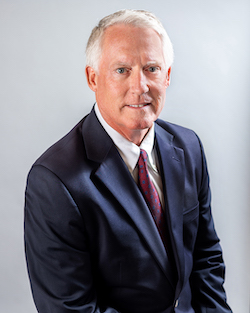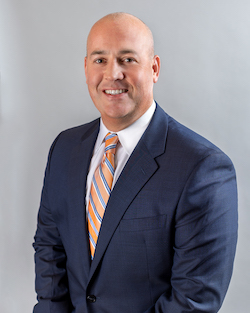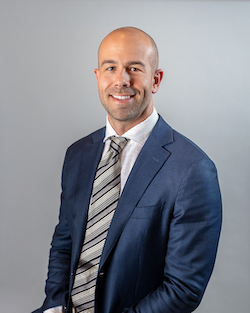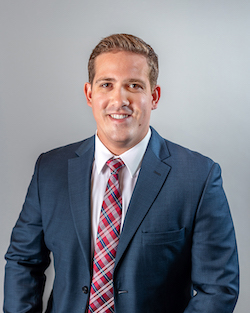Originally seen HERE.
In today’s evolving hospitality landscape, understanding hotel financing is essential. As interest rates fluctuate, consumer travel habits shift and new competitors emerge, hoteliers must be financially savvy to stay ahead. Profitability hinges on strategic financial decisions, from securing funding for renovations to managing debt and cash flow during off-seasons.
We asked a variety of financing experts to share what owners and operators need to know about the hotel financing right now as well as their opinions on the best hospitality investments currently, how to make the most of the current economic climate and if lenders are financing PIPS and renovations right now.
What Owners and Operators Should Know
“The single most critical aspect of hotel financing that I wish more owners understood is that transparency early in the process builds credibility with lenders,” said Adrienne Andrews, managing director in JLL’s Hotels & Hospitality Group. “The details matter, and a lender discovering undisclosed information later in the underwriting process can have an outsized negative impact on their willingness to proceed with financing.
Many clients or deals have some issues that need to be tackled, but when the issue(s) surface unexpectedly later during due diligence—whether it’s personal credit challenges, pending litigation or operational concerns—lenders often react more harshly than if these matters had been disclosed upfront, Andrews said. “This reaction isn’t simply about the issue itself, but about the perceived lack of transparency, which creates doubt about what else might remain undisclosed.”
Andrews cites specific examples of crucial disclosures such as credit issues, anticipated cash flow changes and market dynamics.
For operators, the transparency imperative differs somewhat from owners. While owners need to be forthcoming about financial and property-specific matters, operators who provide comprehensive operational data and highlight both strengths and challenges help build more credibility with lenders than those who present only selective positive information.
“The fundamental principle remains the same: establishing trust through comprehensive disclosure creates a stronger foundation for financing relationships than attempting to manage the narrative by withholding potentially concerning information,” she said.
Brian Waldman, chief investment officer at Peachtree Group, agreed with the need for transparency. “I wish more owners understood the importance of doing what they say they’re going to do and being transparent with their lender,” he said. “Too often, when things don’t go according to plan, people try to hide it. That only makes things worse. A collaborative, transparent relationship with your lender is critical. It gives you the best chance to work through challenges before they escalate. Small problems can be solved, but surprises create larger problems.”
Stan Kozlowski, principal at CooperWynn, believes owners need to understand that securing financing is taking significantly longer due to capital-market volatility. “Lenders’ appetites for hotel debt can change rapidly, so a successful financing strategy now requires casting a much wider net and maintaining persistent communication with a broad range of capital providers,” he advised.
For operators, understanding these financing challenges is key to aligning with ownership on budgets, capital-expenditure timing and overall asset strategy, Kozlowski said.
Owners often underestimate how important deal presentation and sponsor clarity are to lenders, said Ryan Bosch, principal at Arriba Capital. “It’s not just about the numbers. Lenders want to understand the plan, who’s executing it and how risks are being managed,” he said. “A strong narrative backed by credible assumptions can be just as important as trailing cash flow.”
“For operators, I’d say it’s helpful to understand how their performance and reporting impact the ability to attract or retain financing,” he continued. “Operational credibility matters, especially in tougher capital markets.”
Driftwood Capital Chairman and CEO Carlos Rodriguez wishes more hotel owners understood the nuanced relationship between debt service coverage ratios, interest rate environment and lender comfort with leverage. “Owners often underestimate how closely lenders scrutinize their ability to consistently generate adequate cash flow, particularly during refinancing cycles,” he said. “Operators, meanwhile, should appreciate that demonstrating a strong track record of operational efficiency and profitability significantly influences lender underwriting decisions, potentially resulting in more favorable terms.”
Owners and operators both need to understand that lenders include capital expense requirements in cash flows when determining the financeability of a hotel, warned Michael Sonnabend, CEO and co-founder of PMZ Realty Capital. “Lenders are not owners and want to make sure the hotels generate enough capital for debt repayment and to keep the property in the required condition.”
Opportunities and Risks
The current hospitality landscape presents a dual reality of targeted opportunities and significant balance sheet risks, Kozlowski advised. He believes the most compelling opportunities often lie outside of primary gateway cities. “We are seeing strong fundamentals in select secondary and tertiary markets that are benefiting from durable, long-term demand drivers,” he said. “These are markets characterized by significant corporate relocations, expansions in the education and medical sectors or growing leisure and tourism infrastructure. For discerning investors, these areas offer the potential for strategic acquisitions and new development at attractive yields, often overlooked by larger institutional capital.”
One area of concern we have seen is unforeseen expense creep, said Brendan McCormick, managing principal at Smith Hill Capital. “Some of this is attributable to increases in payroll costs, insurance and tax reassessments,” he said. “This is something that both owners and lenders need to be mindful of.”
Waldman sees the biggest risk today as persistent market volatility. “On the political side, conditions seem to shift overnight, with new tariffs, policy changes and geopolitical uncertainty all adding layers of unpredictability,” he said. “At the same time, on the lending side, we are seeing more capital return to the market, but banks remain focused on cleaning up their existing books.”
Many are dealing with legacy loans and tighter regulatory oversight, which means they’re being more selective and conservative when it comes to new originations or modifications. “If you need an extension, a refinance or additional flexibility, expect stricter underwriting, lower leverage and higher pricing. This environment demands proactive, decisive action,” he continued. “Owners should be working now to get ahead of upcoming maturities or capital needs by stress-testing their portfolios, evaluating their options and having honest conversations with lenders early.”
In many cases, that could mean repositioning an asset to better align with market demand, executing a sale while pricing is stable or pursuing a refinance well before the loan comes due, Waldman warned. “Waiting until the last minute is not a strategy. Today’s winners are the ones who prepare early and position themselves to move quickly.”
The current public-market disruption has created a notable opportunity for private owners with longer-term investment horizons, Andrews said. While private equity firms and REITs have reduced their acquisition activity, patient capital can now access higher-quality hotel assets at more attractive valuations than previously available. In a more traditional market, private capital would be competing not only on price, but certainty of execution and name recognition.
“With supply remaining constrained across many markets, there’s a compelling opportunity for strategic conversions at a lower basis,” she said. “Owners can acquire underperforming assets or non-hotel properties and reposition them into higher-performing hospitality products, potentially achieving better returns compared to ground-up development in supply-restricted markets.
“According to JLL’s Global Hotel Investment Outlook 2025, hotels are uniquely [poised] to benefit from the rising Experience Economy. JLL research forecasts that global hotel spending will nearly triple over the next decade as consumers increasingly prioritize spending on experiences over physical goods. Additionally, there was a secular shift in experiential spend post-COVID, and we are in the midst of a great wealth transfer, both of which should benefit hotels and lodging long term.”
Bosch believes one of the biggest opportunities lies in acquiring hotels below replacement cost. “Construction costs are still elevated and many existing assets, particularly in urban markets, can be purchased at a 30 to 40 percent discount to what it would cost to build today,” he said. “For long-term owners, this creates a compelling entry point.”
Bosch believes another opportunity is proactive refinancing. With a wall of maturities ahead, owners who engage lenders early, bring in fresh equity or explore alternative structures (like bridge-to-perm or preferred equity) are putting themselves in a better position to retain flexibility and protect asset value, he continued.
The primary risk is assuming interest rates or lender behavior will normalize quickly. “Credit standards have tightened, leverage is lower and lender sentiment is more sponsor and performance driven than ever,” Bosch continued. “Another major risk is underestimating CapEx. Many properties need significant reinvestment and ignoring that can limit both financing options and long-term competitiveness.”
In the current environment, the most significant opportunities lie in sectors that are resilient and structurally supported by macro trends, said Rodriguez. “Extended-stay segments continue to show robust demand and efficiency in operations, driven by persistent consumer preferences for affordability, convenience and long-term stay capabilities,” he said. “Additionally, luxury and lifestyle hotels in markets experiencing demographic tailwinds and limited new supply—such as Florida’s Space Coast or sunbelt cities like Charlotte, [N.C.]; Nashville; and Miami—are promising.”
Conversely, Rodriguez said the primary risks stem from continued economic volatility, elevated interest rates and inflationary pressures, particularly labor and operating costs. Owners must rigorously underwrite with sensitivity analyses that account for increased operating expenses and potentially lower-than-expected ADR growth.
The biggest opportunities and risks are both related to the difficulty that many borrowers will face refinancing loans coming due, warned Sonnabend. “Approximately 20 percent of the loans will not have a clear path to refinance,” he said. “This will require the existing owner to either sell or return the property to the lender. These sales will present the opportunity to acquire performing assets at a price reflective of the performance and required CapEx needed today. The risk is for owners that don’t have a clear path to refinance and will have to sell or recapitalize the asset at unfavorable terms.”
Rising union activity presents a significant operational risk, with potential impacts on wage structures and labor costs, Andrews warned. “Recent organizing efforts have gained momentum in various markets, potentially creating upward pressure on operating expenses, which flows through even to non-union markets, that may not be easily offset by corresponding ADR increases,” she said.
Broader economic uncertainty, amplified by headline news and policy decisions, remains a risk factor that is impacting both consumer travel sentiment and, particularly, foreign guests who would otherwise travel to the U.S., Andrews continued. These factors influence discretionary spending and business travel budgets, creating the potential for hotels to face short-term revenue challenges despite the relatively controlled supply environment, she said.
Some of the largest risks Kozlowski sees are centered on the capital stack. For new acquisitions or developments, the chief concern is maintaining conservative leverage. Overleveraging in a volatile interest rate environment can quickly erode returns and limit operational flexibility.
“For existing assets, the most immediate risk is near-term debt maturities,” he said. “The current refinancing market is less liquid, more expensive and requires significantly more lead time. Owners must proactively address any looming maturities well in advance, as securing replacement financing is a complex process that often requires more creative and structured solutions than in previous cycles. Failure to do so poses a material risk to the asset.”












